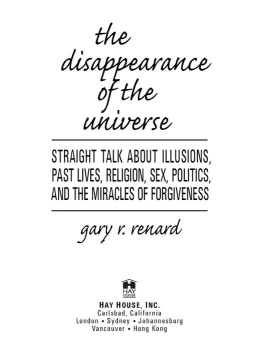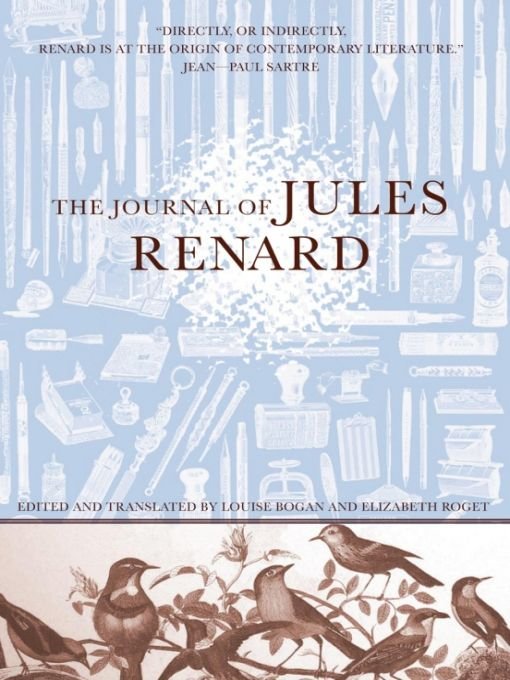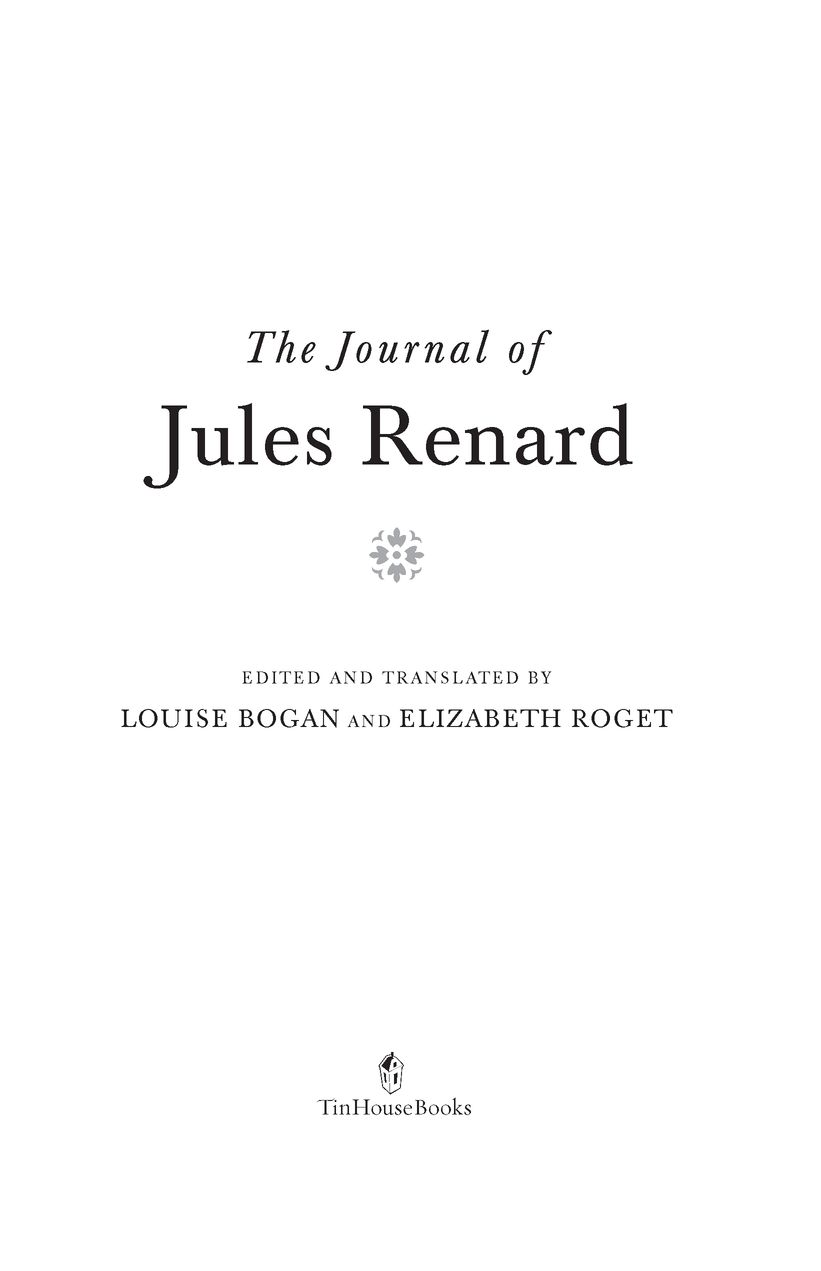Table of Contents
PREFACE
Je lis avec ravissement le Journal de Jules Renard... Il y a l, par moments, de lexcellent, du parfait; et parfois mme, surprise, de lattendri...
Andr Gide, Journal (March 1927)
It is difficult to discover, given Jules Renards steadily augmented reputation in France and elsewhere since his death in 1910, the reasons for the almost total neglect of his work in England and America. His chief fame in English-speaking countries came to be attached to the motion picture, released in the early thirties, based on Poil de Carotte, the extraordinary autobiographical rcit first published in 1894 and later made into a one-act play by Renard in 1900. In France, his early novel, LEcornifleur (1892), is considered one of the great novels of the nineteenth century. His Journal, published in definitive form in 1935, was reissued in 1960 in the format of the Bibliothque de la Pliadea series remarkable for its finely-produced editions of French classical literature. Critical praise of a high order has been tendered the author over the years. Albert Thibaudet in 1927 named Renards Journal indit, along with Gides Si le grain ne meurt, as incontestably the two autobiographical masterpieces of the twentieth century.
Renard never in any manner attached himself to that avant-garde which was in process of formation in Paris in all the arts during his lifetime, and this separation from movements which were about to gather to themselves the most striking talents of the new century may well have kept his reputation apart from the mainstream of influence. Renard wrote plays for the theatres of the boulevards. He became a member of the Acadmie Goncourt, but was never closely in touch with the experimental or the extreme. Although he knew and liked Toulouse-Lautrec (who was to illustrate his Histoires naturelles ), he took no interest when Maurice Ravel set parts of this most charming bestiary to music, not even to the extent of attending a first concert presentation.
It is one of Renards central virtues that his mind and emotions continued to be refreshed by the air of his countrysideespecially during the yearswhen he, like his father before him, became mayor of Chitry.
The keeping of a journal may become a futile and time-wasting occupation for a writer. Temptations toward the inconsequential detail, the vaporous idea and the self-regarding emotion are always present and can become overwhelming. Renards Journal, from its beginning, shows a young writer who is consciously moving away from early mistakes, whose goal is cleanness of style and precision of language. We do not see him as an innovator, but as one who made restitution of certain classically severe effects which the French Romantics in their exuberance, and the Symbolists in their search for the extremes of musicality, had overlooked or ignored. It is possible, in the pages of the Journal, to watch Renard training himself, independent of schools... how to reproduce in compressed and resistant [prose] life completely pure and completely simplehis life and the life of others.
The atmosphere of the period was hardly propitious for this sort of truth-telling, or this sort of style. The great days of Symbolism were overMallarm had died in 1898and the central figures of the modem revolt in all the arts were still too young to have made their mark. A tired exoticism afflicted academic and official art, and poetry (no matter how feeble)not prosegave entrance to the salons. Renards early apprenticeship writing reflects this atmosphere. But by 1890, when he was twenty-six, he had begun to put his youthful affectations and artificialities behind him for good; the Journal, from its first pages, abounds in mockery of the false, the half-observed, and the grandiose.
Renards passion for factual truth and stylistic exactitude, once formed, remained central to his work throughout his career. This preoccupation never hardened into obsession; one of the great pleasures of reading Renard is the certainty, soon felt by the reader, that nothing is being put down in meanness or malice. The shadow of the small boy who had suffered bitterly because of the obsessions of his parentshis fathers mutism, his mothers hypocrisyalways falls across the page. But Renard, in speaking difficult and shocking truths concerning Mme. Lepic (the name given to the mother of Poil de Carotte was carried over, in the Journal, to denote his own mother), does not hesitate to tell equally shocking truths about her red-headed son. Hard facts concerning family relationships were not usual in end-of-the-century writing. And Renard, in the Journal , presents the erotic elements in the son-mother relationship with extraordinary franknessa frankness he shares with Stendhal (in Henri Brulard) before him, and with the Proust who is to come.
Truth about life, in Renards view, had been distorted by literature. He applied himself to correct that distortion, not by the crass realism of Zola, but by an analysis based on sympathy, warmth, and tenderness. The peasants of his countryside were as important to him as his Parisian colleagues; they were his friends and his neighbors; even the dullest of his servants was not separated from his affection and attention. Animals were his familiars; he visited the Paris zoo regularly with enthusiastic interest, and he knew and felt for the wild and tame creatures of field and barnyard. The Journal celebrates the mystery, strangeness and beauty of bird and beast, seen without romantic coloring within their natural scene.
The final impression received from the Journal is one of delicacy backed up by powerpower of character and power of intellect. Again and again those moments of insight appear which can only stem from absolute honesty of perception added to complete largeness of spirit. At these moments we understand why Renards compatriots have not hesitated, some fifty years after his death, to name him among the masters.
The Journal, spanning twenty-four years, is a very long book. In its latest edition, the compact volume put out by the Bibliothque de la Pliade in 1960, it runs to 1267 pages. In making a selection that would place the writer and his preoccupations before the American reader, we have necessarily had to leave out, not only a large body of writers notes, but whole topicssuch as Jules Renards periods of service in the army; his accounts of the many literary banquets for which the period was famous; his espousal of the cause of Dreyfus (for he was an impassioned dreyfusard, and backed Zola with enthusiasm and indignation); his near-discipleship of the celebrated Socialist leader, Jean Jaurs; and his adoptionwhich appears more romantic than practicalof socialism. There are also a number of entries that are too topical to be of interest in this country and this time.
We have tried to establish, by the very things left out, a sort of continuity. In the texts we have chosen, the pleasures are many. There are, always, the single descriptive phrases, usually centered around an image that is at once poetic and piercingly exact; the insights into people and situations; the sketches of his country (one wishes he had done the same for Paris); the literary comment. Among the threads that run through the years we see the life of the writer as a man of letters, both in what it meant to him personally and in its aspect of worldly successthe













